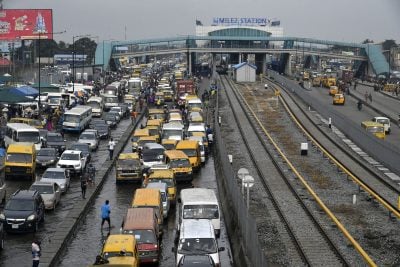Airbnb – the online broker that connects tourists with property owners – has experienced quite startling growth in Africa.
Active accommodation listings on the continent increased from 62,000 to 100,000 in the year to 1 September 2017. The figure in 2013 was just 6,000.
This development has seen annual guest numbers in Africa increase by over 5,000% since 2012, to hit 1.2m last year, the fifth consecutive year of strong growth. According to Airbnb, African hosts earned $139m from the service in the past 12 months.
Africa still accounts for a fraction of Airbnb’s business. Until last year, the continent had fewer listings than the city of Paris. Nevertheless, recent growth is hard to ignore and shows no signs of abating.
As the company steps up its interest in the continent, lessons learned elsewhere could trigger a race to regulate the service before it’s too late. South Africa accounts for a large portion of Airbnb listings. A trailblazer since 2010, the country welcomed 651,000 guests over the past year, experiencing growth of 143%.
Currently there are over 43,000 active listings in South Africa, with typical hosts earning $1,900 annually from the service. Naturally Cape Town, with its mountains and beaches, is the most popular destination.
Success in South Africa has been so profound that Airbnb management companies have proliferated to help residents monetise their properties and spare rooms. “We started two and a half years ago in early 2015 with our own properties,” says Greg Schneider, managing director of Superhost South Africa, one such company. “It exploded off the back of that.” Most of Superhost’s clients have year-round listings, and rely on Schneider’s company to handle bookings, cleaning, key exchange and emergencies.
Morocco and Kenya are the second and third largest African hubs respectively, though while Morocco has 21,000 active listings, Kenya has just 5,900. Despite growth of 325% over the last year, Nigeria has just 730 listings. Meanwhile its capital, Lagos, is a city of 21m people. Nascent markets exist in Rwanda, Senegal, Zimbabwe, Swaziland and elsewhere.
Long-term vision
Yet Airbnb’s activities on the continent extend beyond its standard hosting service; like Microsoft, IBM and Uber, the company is approaching Africa as a long-term investment opportunity. In October, it signed a collaboration agreement with Cape Town to advance its brand of people-to-people tourism among the city’s residents. In return, Airbnb will help promote Cape Town to tourists across the globe.
Next May, Airbnb will work with partners to organise the Africa Travel Summit in Cape Town, focusing on sustainable growth in tourism. The event will involve training for individuals, organisations and NGOs to bring Airbnb to their communities.
And in October, the company promised to invest $1m in community-driven tourism projects across Africa, including training South African township residents in hospitality. “In November 2016, Airbnb launched its ‘experiences’ service,” says Fergal McGivney, travel and technology analyst at Mintel, a market research firm. “This allows guests to try out a range of experiences put together by in-the-know locals.”
This is expected to increase the number of people across the continent who can accrue income from Airbnb. “Previously you needed a property to list, but experiences are a really interesting play by them,” says Schneider. “It’s an incredible way to bring revenue to different areas.”
This strikes at the heart of Airbnb’s success on the continent: allowing people to create new economic opportunities for themselves by monetising a spare room or a local experience, in places where such opportunities are often limited. Though established hotels and operators capture the lion’s share of the tourism business, Airbnb can open up market opportunities for outsiders, requiring minimal startup capital.
Hosts in Kenya and Tanzania earned $3.9m and $2.1m respectively in the year to September 2017. In Morocco, the average host earned $1,300 last year. Meanwhile female hosts outnumber their male counterparts across the continent.
“Africa is in need of as much foreign investment as possible,” says Schneider. “Airbnb allows you to do local tourism. It puts foreign dollars in the pockets of lower and middle class Africans.” This local tourism is particularly appealing to younger, more adventurous travellers seeking to avoid the conformity of traditional tourism packages. According to Airbnb, the average age of guests on the continent is 37.
In addition, not every destination has an established hotel that appeals to international travellers. “Airbnb becomes a branded alternative in markets without a major hotel presence,” says Trevor Ward, managing director of the Hospitality Group in Lagos.
Calls for regulation
Nevertheless, various issues that have arisen in most of the cities in which Airbnb operates have not eluded the African continent. Many hotels have expressed irritation at the lack of regulation applied to Airbnb, and the ways in which it can manipulate the accommodation market in times of high demand.
“Airbnb comes in at the compression nights when hotels would ordinarily take advantage of moments of high demand,” says Ward. This limits the ability of hotels to fetch a premium on their rooms when there’s a large event in town. The same is true for Christmas and New Year in Cape Town. “A lot of occasional hosts move in with family to capitalise on the increased demand,” says Schneider.
As Airbnb shakes up the tourism business, hotels in Cape Town and elsewhere are forced to break new ground. New accommodation is popping up offering self-catering and studio apartments, according to Schneider, to try to replicate the Airbnb experience.
Other sticking points in Africa are a lack of confidence in destinations and hosts, and safety concerns given the platform’s regulatory grey areas. “There are Airbnb listings in Lagos, but the average traveller is not going to use it and that boils down to trust,” says Ward.
Affect on property prices
A key complaint levelled at the company is that it prices out locals. “The theory is that if investors are buying properties in cities to rent out to tourists, this takes living space off the market for local renters,” says McGivney. Experts feel Airbnb has contributed to the explosion of property prices in Cape Town, and there has been much talk of regulation.
Current local law in Namibia forces lodging providers with two or more bedrooms to register with the local tourism board. While people can rent out a spare room in Cape Town, a block of flats cannot legally house tourists. In some cities, it is possible that an Airbnb listing could be classed as a hotel, spelling vast quantities of paperwork.
The race to regulate Airbnb in Africa has not begun in earnest. But given the impressive growth – and recent legislation in major cities like New York and Berlin – it may start soon. “If it did get on the regulatory radar, many countries would over-regulate,” predicts Ward. “We are very good at that in Africa.”
Of course, Superhost South Africa is upbeat about the prospect. “If regulation comes into place, that may create a barrier to entry for occasional hosts,” says Schneider. “They may look to professional managers who can navigate that space.”
Charlie Mitchell
Want to continue reading? Subscribe today.
You've read all your free articles for this month! Subscribe now to enjoy full access to our content.
Digital Monthly
£8.00 / month
Receive full unlimited access to our articles, opinions, podcasts and more.
Digital Yearly
£70.00 / year
Our best value offer - save £26 and gain access to all of our digital content for an entire year!
 Sign in with Google
Sign in with Google 


